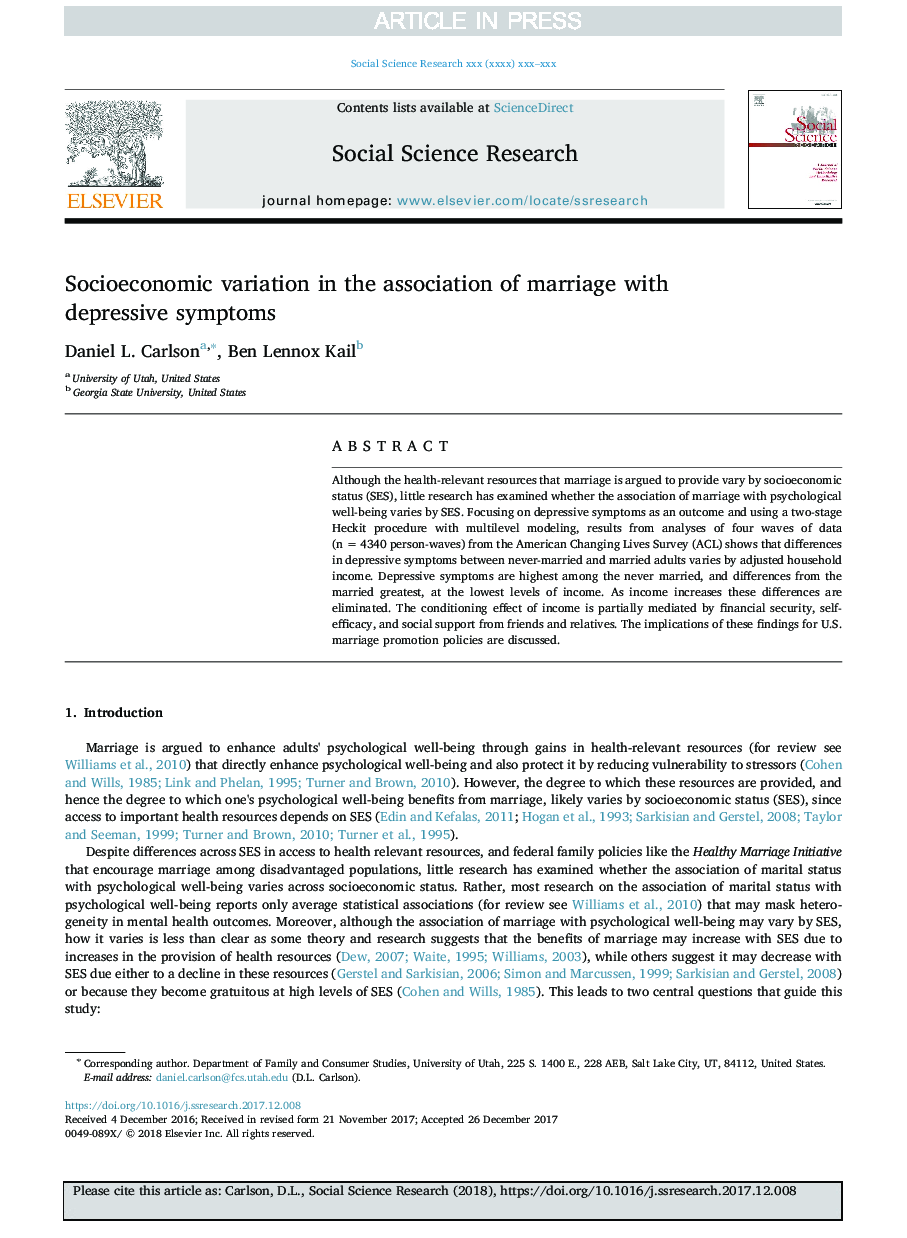| Article ID | Journal | Published Year | Pages | File Type |
|---|---|---|---|---|
| 7338708 | Social Science Research | 2018 | 13 Pages |
Abstract
Although the health-relevant resources that marriage is argued to provide vary by socioeconomic status (SES), little research has examined whether the association of marriage with psychological well-being varies by SES. Focusing on depressive symptoms as an outcome and using a two-stage Heckit procedure with multilevel modeling, results from analyses of four waves of data (nâ¯=â¯4340 person-waves) from the American Changing Lives Survey (ACL) shows that differences in depressive symptoms between never-married and married adults varies by adjusted household income. Depressive symptoms are highest among the never married, and differences from the married greatest, at the lowest levels of income. As income increases these differences are eliminated. The conditioning effect of income is partially mediated by financial security, self-efficacy, and social support from friends and relatives. The implications of these findings for U.S. marriage promotion policies are discussed.
Related Topics
Social Sciences and Humanities
Psychology
Social Psychology
Authors
Daniel L. Carlson, Ben Lennox Kail,
